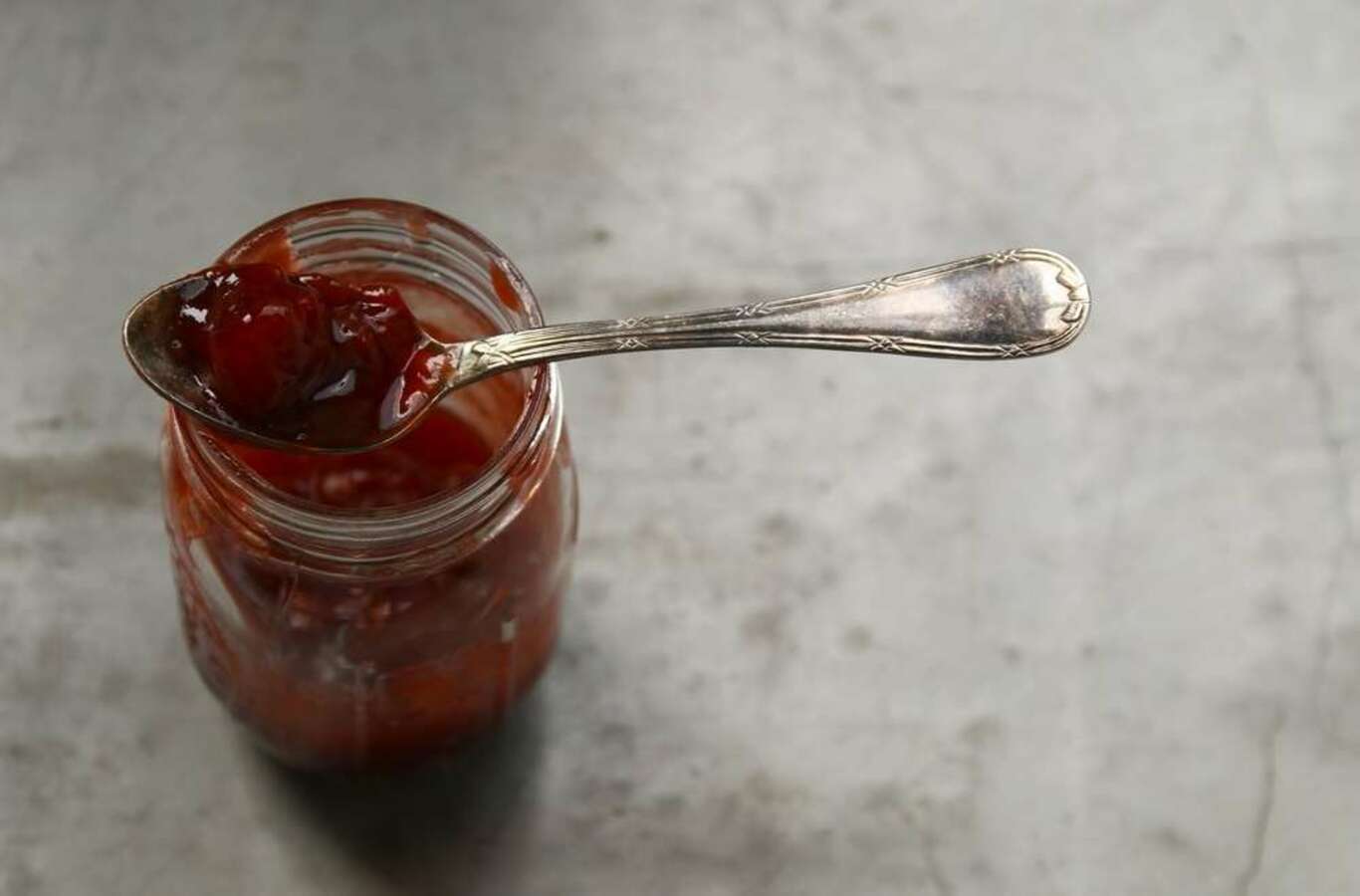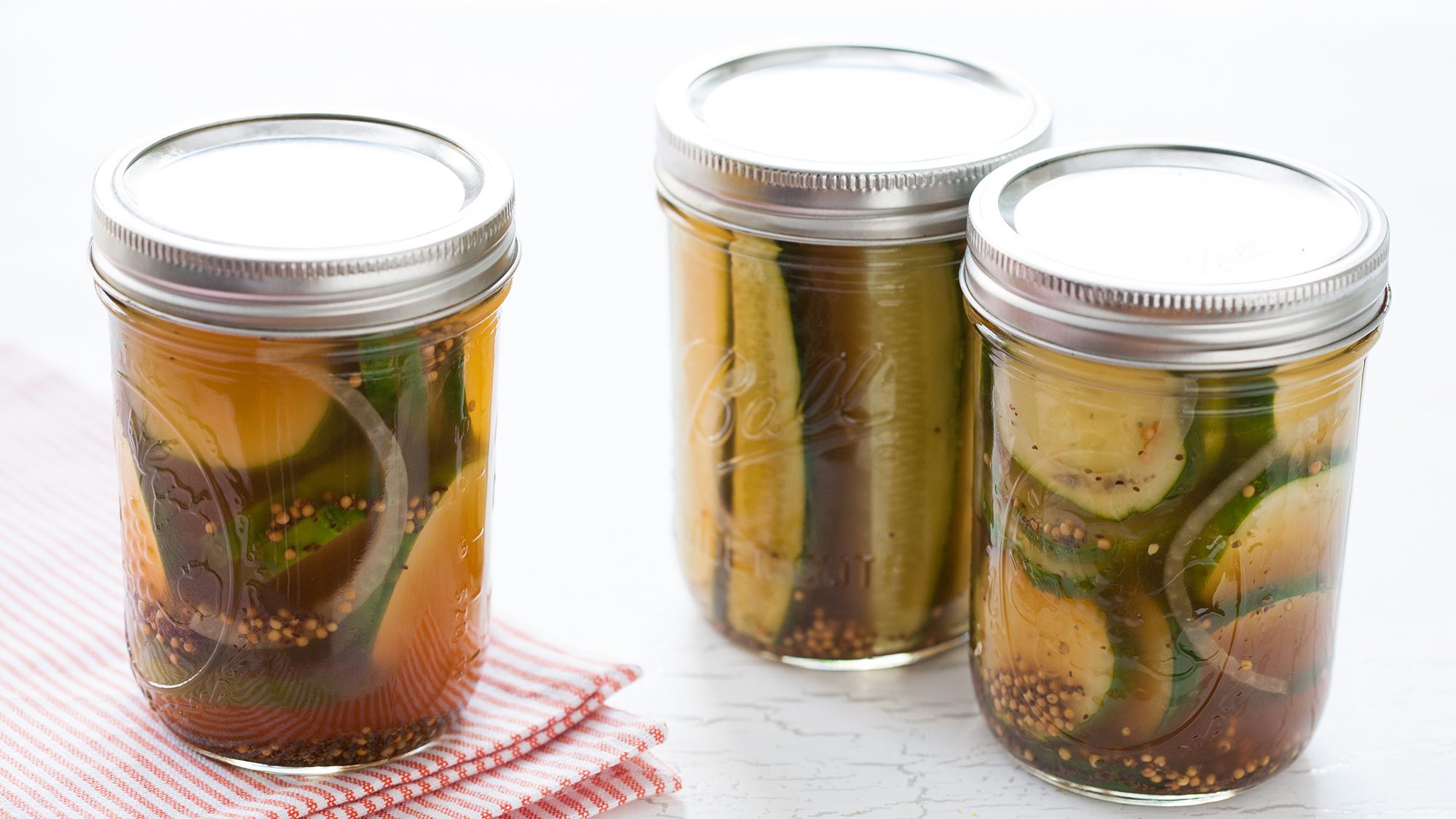All the fresh, dried, and canned goods you need to eat like a proper Finn
Many Finnish people recall being traumatized by boiled potatoes as children because they're the cornerstone of most Finnish school meals. I have similar memories.
But there's much more to Finland than the starchy vegetable. After potatoes, my mind drifts to the mighty sea, the lakes, the forests, the darkness during a heavy winter, and the endless daylight in midsummer. I think of the strong bread culture—rye and sour, flatbreads and yeast breads—the most innovative uses of root vegetables, and Instagram feeds filled with buckets of wild berries and foraged mushrooms during peak season. I think of fishing trips and pickles and pulla, the braided sweet cinnamon bread. These are the things I think of after potatoes.
Finland celebrates the 100th anniversary of its independence tomorrow, and to celebrate its food culture, I gathered 15 pantry items that you'll likely find in a Finnish home like mine. Armed with ingredients like dill, an essential addition to any Finnish crayfish boil, and oats, a requisite for the staple Finnish porridge, you'll be on your way to cooking up a feast in no time.
We Finns might sometimes seem like silent people—especially when we haven't had our schnapps—but we show our love with food. So, whichever of these recipes you choose to try, make some extra. That’s what a Finn would do. Hyvää ruokahalua (happy eating)!
Dill
Small summer potatoes, dill, and butter form the holy trinity of Finnish summer cuisine. And dill loves seafood. Finland has the highest number of lakes in relation to a country size—one lake for every 26 people, to be exact. There are also rivers, and the Baltic Sea coast, so fish plays a big role in our cuisine. Where there is fish, there is dill. Dill divides people strongly, just like coriander. But even the haters will tolerate it, when having epic, schnapps-soaked Finnish crayfish parties.
Funnel chanterelle

Funnel chanterelle | Pauliina Siniauer
Finns sometimes compare things to "mushrooms in the rain." It means to have a lot of something, and fast. Two billion kilograms of mushrooms grow in Finland’s forests every year, making mushroom picking a national hobby. Just be sure not to reveal your spot to anyone. That's part of the game. Autumn (funnel) chanterelles, are easy to find and they make excellent pies and sauces to accompany your potatoes.
Strawberry Jam

Strawberry jam | Pauliina Siniauer
When the first strawberries of the summer hit the markets, they're expensive. But you just can’t resist them: the difference in taste compared to the imported strawberries is astronomical. Then starts the race against time. How long can you wait for prices to drop without missing the season? When you think you have reached the optimal moment, buy at least ten pounds and freeze them to make jam. The jam is best served with pancakes or vanilla ice cream.
Rye

Rye | Pauliina Siniauer
It’s intense. Very intense. Sour rye bread is the cornerstone of Finnish food culture, hands down. Dough starters that are older than our independence are the pride of bakeries. Supermarkets versions often contain also some wheat, but the real thing is made from starter, rye flour, salt and water. If you are not used to it, the sour flavor might surprise you (unless you have as thick slice of butter with your bread, like my grandma used to). 100% rye bread takes days to make. But if you want to take an easy step to the darker side of bread, try out this Icelandic version.
Nettle

Nettle | Pauliina Siniauer
Try finding a Finn who hasn't been stung by nettle. It burns. You’ll get a blister. It’s annoying. Yet we eat them. Nettle will lose its sting when cooked, and you can use it in lieu of spinach or any other leafy green. Sautée it or toss it in a soup, risotto, pasta or frittata. Or make a creamy stove-top casserole out of it. Nettle can also be used dried, as a tea.
Oats

Oats | Pauliina Siniauer
Oats are another staple of the Finnish diet. Nowadays, Finns are even making meat substitutes out of it. Finnish kids are raised with oat porridge, but you can get as creative with it as your imagination allows. Here are some ideas: make crumble for baked apples, spiced buttermilk oatmeal, thin, crunchy oat cookies, or banana muffins.
Cabbage

Cabbage | Pauliina Siniauer
Cabbage casserole, cabbage pie and stuffed cabbage rolls are all Finnish delicacies, but we also have our version of fermented cabbage, sauerkraut, just like our Russian neighbors. It’s cheap, easy, and good for your system. All you need is cabbage and salt, and you are right on the fermenting trend.
Coffee

Coffee | Pauliina Siniauer
Finns drink the most coffee in the world. Yep, it's cold and dark out there.
Cardamom

Cardamom | Pauliina Siniauer
The smell of fresh pulla is unarming. It can have a grown-up in tears. It’s the smell of childhood, Finland, coffee breaks and comfort. Pulla is a sort of sweet bread: the key ingredients are wheat, yeast, cardamom, cinnamon, sugar and butter. Sound like ultimate baked heaven? It is. The old-school way is to braid it, a skill that we are taught in high school.
Vinegar

Vinegar | Pauliina Siniauer
You need vinegar to pickle everything. Try a Finnish grandmother's recipe for pickling: slice two cucumbers and place them in a jar with three tablespoons of sugar, one teaspoon of salt, and some chopped dill. Pour in mix of vinegar and water (use three parts water and one part vinegar) to submerge the cucumbers. Close the jar, shake, and leave it to cool for the season.
Bilberries

Bilberries | Pauliina Siniauer
In Nordic countries, wild blueberries are actually called bilberries. They come from a same berry family, but bilberries grow wild on small shrubs. They’re smaller than blueberries, and their intense interior purple color is one of their hallmark characteristics. Many consider bilberries a superfood, due to their health benefits. It stains your fingers, lips and mouth, so you’ll get caught if you sneaked out to eat them. There’s more bilberries growing wild that Finns have time to pick, so when the season arrives, the best thing to do is go sit in the forest and eat. Try traditional Finnish bilberry milk, the healthiest shake or smoothie in the world: combine fresh or frozen bilberries, milk and some sugar, and cinnamon. Or make a soup out of them.
Salt

Salt | Pauliina Siniauer
Salting fish is a tradition that is supposed to be passed on from parent to child in Finland. But sometimes it doesn't: I will never forget that Christmas when my father tried to do it for the first time in his life. The result was such a salty fish that none of us could eat it. To give your salt a Nordic twist, spice it up with spruce, which gives you another good reason to enter the forest (Notice a theme here?).
Cinnamon

Cinnamon | Pauliina Siniauer
The Finnish fall is a celebration of apples, and its marriage with cinnamon. The two meet in pies, tarts, porridge, and soup, but the ultimate classic is baked apples that you stuff with cinnamon, oats and butter. During Christmastime, you need cinnamon for gingerbread and, of course, mulled wine.
Potatoes

Potatoes | Pauliina Siniauer
Boil, mash, or bake. Leftovers can be even used for a bread dough, fritters, pancakes, or as a stuffing for a pie. In Finland, the first day of May is a huge celebration known as May Day, Labour Day, Carnival, or Vappu. Whatever you call it, you can't miss it. This national holiday is also a celebration of spring, so part of the tradition is to have a picnic, even if it's snowing (yes, that has happened). There are a few staples in the May Day picnic basket: potato salad with herring and wieners.
Beer

Beer | Pauliina Siniauer
Finland has a long history of brewing. One of the world's oldest varieties of beer is the Finnish farm-style sahti, traditionally made of dark rye malt, sugar and yeast. For daily consumption, there is kotikalja, a malty, sweeter beer, fermented only for carbonation. The alcohol content is low enough it can be served as a soft drink. Fresh kotikalja is unfiltered, and cannot be stored. But we do enjoy the alcoholic versions too, as the craft beer culture booms here like in many other countries. One fun way to use beer is to pour some in a blini dough.
This article was written by Pauliina Siniauer from Saveur and was legally licensed through the NewsCred publisher network. Please direct all licensing questions to legal@newscred.com.








